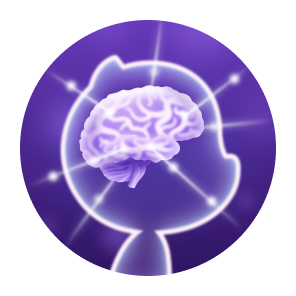I'm an engineering lead with ~30 years experience developing cross platform software for the web, desktop, server, mobile and devices with open source contributions going back 25 years. I've got experience working in startups (including two companies of my own), large enterprise orgs and on non-profit/civic-tech and on collaborative volunteer projects.
I live in Edinburgh, Scotland and I work at Unity on game backend systems for Unity Gaming Services.
You can find me on Mastodon as @iaincollins, sometimes I post on Medium.
Most of my public work on GitHub is on personal side projects and spans different types of software, mostly things just for fun these days!
A collection of scenes that can be explored in a first person view. The terrain and objects in the scenes are created and placed at runtime using procedural generation.
It's built with Next.js an React and with custom components created for React Three Fibre, a wrapper for Three.js, which is in turn an abstraction for WebGL. This an unconventional stack and it's a very simple demo, but it was a fun exercise in seeing what's possible using those components and has helped me better understand how React Three Fibre and Three.js work in practice.
A constantly live-updating database of over 130 million locations, tracking 40-50 million commodity buy/sell order prices on galactic trade markets in the year 3038, using data from players of the game Elite Dangerous, collected from game clients using an API provided by the games developer. It runs on low-end hardware, built entirely in JavaScript and SQLite and has a similarly low-fi asthetic for the UI.
ICARUS Terminal is a companion app / second screen for the game Elite: Dangerous, the latest follow up to the 1984 classic space game Elite. Designed for both desktop/laptop computers and for tablets/phones, the app hooks into the game to provide context-sensitive real time information (event driven and socket based) by combining the game API with third party APIs. Built with Next.js, React, Node.js, Go and C++.
I created NextAuth.js a few years ago because there wasn't anything like it already.
It now has millions of downloads a month and become one of top 1000 open source projects on GitHub (according to GitHub). It's an open source, community supported project based around interoperability with open standards. NextAuth.js has grown to support dozens of auth providers and a wide range of SQL and no-SQL databases. Originally developed for React - and specifically Next.js, hence the name - it has been ported to other popular frameworks, including Vue.js and Svelte and can be used with non-JavaScript frameworks, such as Drupal.
I've since moved on to other projects and am no longer actively involved, other than to look in and see how things are going now and then. To ensure it remains open source, collaborative and independent it has been spun off into a dedicated organization, with it's own core team.
I developed Mercury with funding from Google DNI. Mercury is a web based video and transcript editor and translation workflow tool that lets you drop-and-drag a video in one language in and then watch it back in other languages, with an editable, timestamped transcript in each language, that can also be exported as subtitles or text.
Designed for news and media organisations, Mercury allows teams to upload, edit, transcode, transcribe and translate audio and video files (in a wide range of formats, including large, unprocessed files) from anywhere in the world on any web enabled device (including a smartphone) and share them in a secure and searchable way.
Designed to fill a gap in tooling in Google Lighthouse and Google's own Structured Data Testing Tool, by providing an extendible command line tool and API that includes out of the box support for checking both Schema.org entities and social media markup.
While useful for any website but especially useful for news and media organizations as ensuring markup quality can have a significant impact on traffic coming from Google News and Google Discover, as well as organic traffic from search engines.
A library useful for data scraping, originally created to support work on civic tech and data journalism. Table to JSON is used by dozens of other packages, in other higher level scraper libraries and in projects to track a wide range of things from COVID-19 data to TV shows, news and weather to class times for students. Table to JSON is now maintained by @maugenst.












